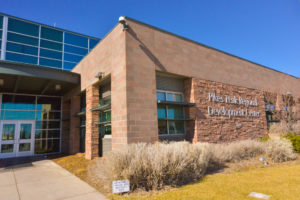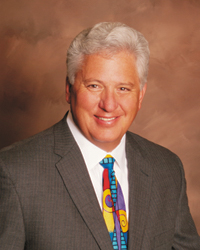COLORADO SPRINGS–At the monthly meeting of the Regional Building Commission (RBC), which oversees the Pikes Peak Regional Building Department (PPRBD), Commissioners Tyler Stevens, Tom Strand and Mark Waller approved a $250,000 grant to the Housing & Building Association (HBA) to help fund a new educational program designed to give high school students practical experience in the building trades.

The grant comes from excess funds collected by the PPRBD for building permits. The PPRBD is limited by its intergovernmental agreement to only retain a certain level of cash reserves. Adjustments to permit and inspection fees are supposed to deal with excess fees, but in some cases, such as widespread hail storms that can mean as many as 50,000 unexpected permit applications, the PPRBD sometimes suffers an embarrassment of riches.
Last year, in response to criticism that the PPRBD was hoarding cash far beyond its reserve limits, the RBC passed a resolution that allows excess reserves to be granted for the purposes of enhancing education and training in the building trades.
The HBA lobbied for the resolution and submitted a grant request to fund a program for 2019 that will see students from five El Paso County high schools building modular homes on school grounds, administered by a new non-profit organization, Careers In Construction Colorado (CICC), that will manage the program.
George Hess, co-chair of CICC says benefits to students include skilled-trade training, employability, leadership skills and employment and career pathway opportunities.
Students will learn carpentry, electrical, plumbing and other trade skills through a combination of classroom teaching, practice modules, building balsa-wood scale models and ultimately by actually constructing a modular home.
Students will do the bulk of the work, overseen by school instructors and assisted by licensed professional volunteers from the building trades including electricians, plumbers and carpenters. Certain aspects, such as heating and air-conditioning sheet-metal installation will be performed by professionals because of the high risk of injury to students.
The homes will be built on school grounds to eliminate travel time to and from a worksite. “Students will be able to walk out of the door of their classroom and go immediately to work,” said Hess.
There was some resistance from school district risk management, but those problems were resolved with CICC owning the homes and providing project management, construction insurance and home warranty management. School districts would maintain their usual insurance policies.
Completing a home is expected to take a year or more because students will only work on it part-time. Once finished the home will be sold and moved from the school grounds to their final location. The houses are 1,200 square feet and qualify as low-income housing.
“It’s an affordable housing product,” said Hess.

Proceeds of the sale will support future projects. “The bulk of the money goes back into the program,” Hess continued.
One district has already expressed a desire to take ownership of houses to provide them as affordable housing for district teachers.
Reaction to the program by the building trades and suppliers has been positive. “Acceptance of the program from the industry has been phenomenal,” Hess said.
Most of the materials for construction will be donated. Companies including roofing manufacturer GAF, joist and lumber manufacturer Boise Cascade, wood-based panel manufacturer Norbord, flooring manufacturer Shaw and plumbing fixture manufacturer Koehler have agreed to donate products to the program.
CICC will be soliciting donations for other supplies from local sources. Hess says that some materials will have to be purchased.
Ten schools so far are interested in the program, with five starting construction on homes in February. Five hundred students are already enrolled in the program and the goal is to enroll 1,000 students and build 10 homes per year.
Regional Building Commission meetings are held on the fourth Thursday of every month at 2:00 p.m. at the Pikes Peak Regional Development Center, 2880 International Circle, Colorado Springs, CO 80910.


